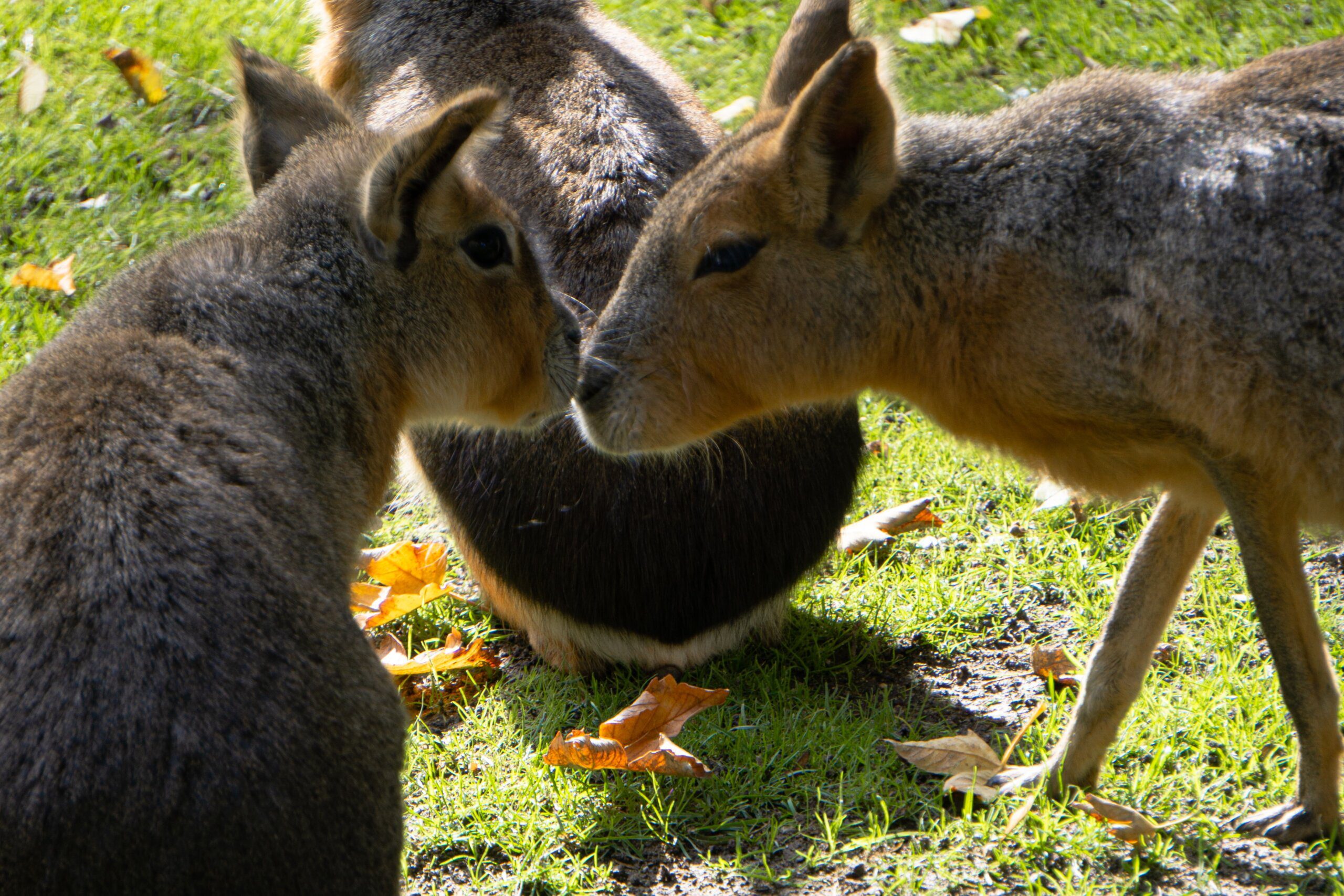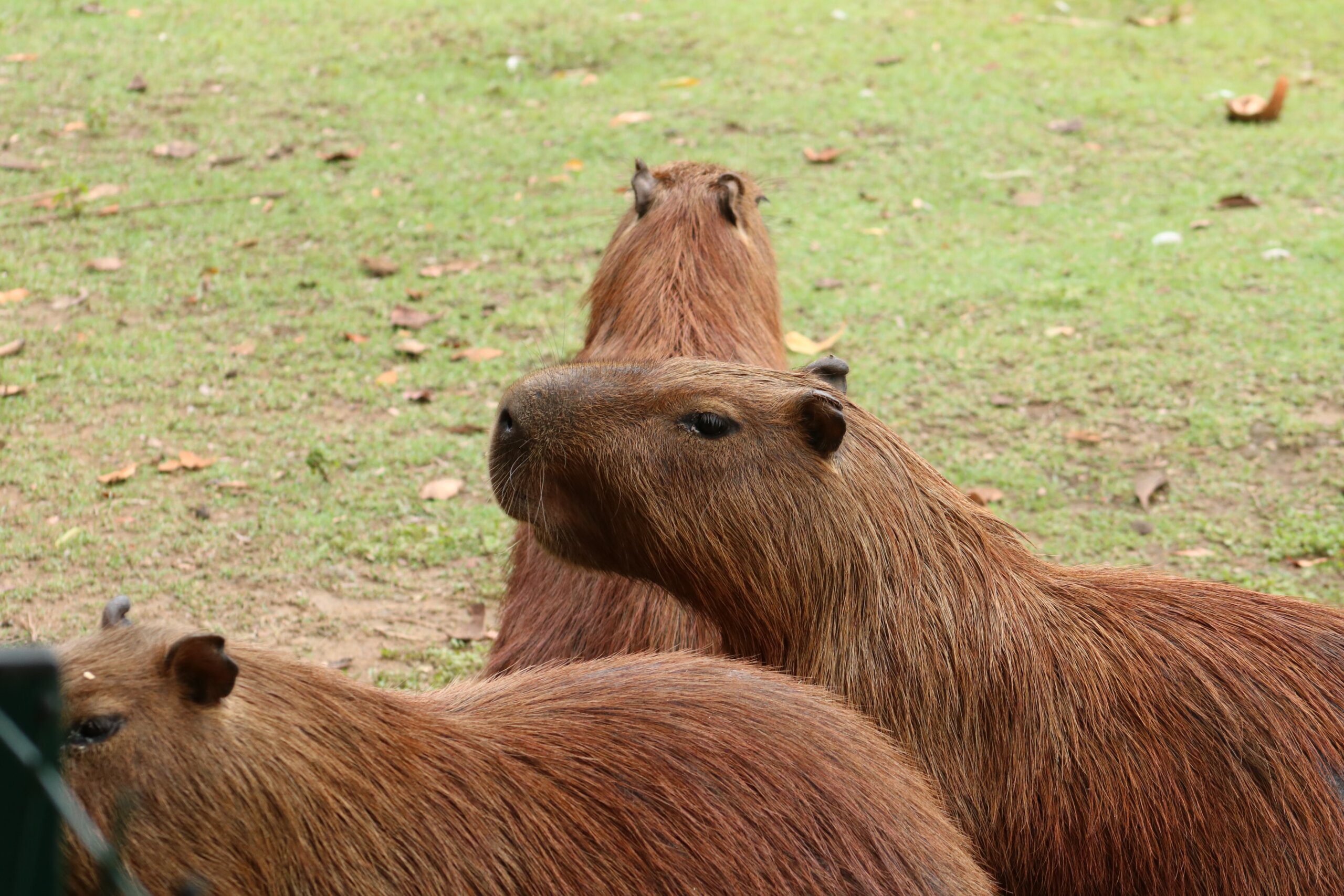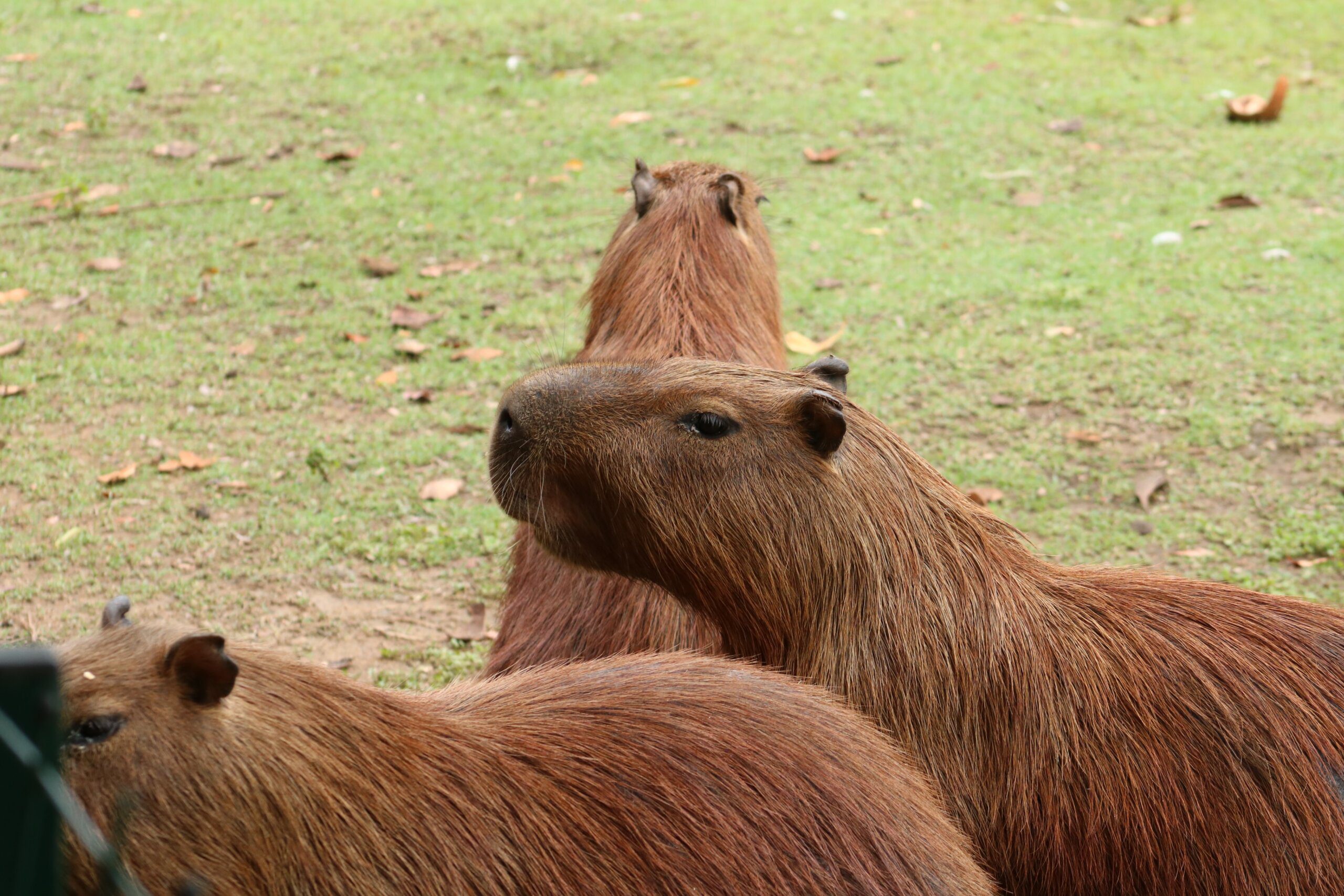Have you ever dreamed of having an exotic pet that is both adorable and unique? Well, your dream can now become a reality with the opportunity to get your very own real Capybara today! These gentle and social creatures, native to South America, are known for their friendly nature and their resemblance to oversized guinea pigs. If you’ve always wanted a furry companion that will capture the hearts of everyone around you, look no further than the chance to bring a real capybara into your home. Don’t miss out on this extraordinary opportunity to experience the joy of owning one of nature’s most captivating creatures!

Choosing a Real Capybara
Considerations before getting a capybara
Before bringing a capybara into your life, there are several important considerations to keep in mind. Firstly, capybaras are social animals that require ample space to roam and interact. They are happiest when surrounded by other capybaras or even other animal companions. Additionally, you need to ensure that your living situation allows for the proper habitat and care that capybaras require.
Finding a reputable seller
When searching for a capybara, it’s crucial to find a reputable seller who has experience and knowledge in handling these unique creatures. Look for sellers who prioritize the well-being of their animals and can provide you with accurate information on the capybara’s history, health, and temperament. Take the time to research different sellers, read reviews, and ask for recommendations from trusted sources.
Researching local regulations
Before bringing a capybara into your home, it’s essential to research the local regulations regarding their ownership. Some areas have specific laws and permits required for keeping exotic animals, including capybaras. Make sure you understand and comply with all the legal requirements to avoid any unnecessary complications or legal issues in the future. Contact your local animal control or wildlife agencies to gather accurate information about capybara ownership in your area.
Caring for Your Capybara
Providing a suitable habitat
Creating a suitable habitat for your capybara is essential to their well-being. Capybaras are semi-aquatic creatures that require both land and water areas in their enclosure. Ideally, their habitat should include a large, shallow water source, as capybaras love to swim and spend a considerable amount of time in the water. Additionally, they need ample space to roam and graze on grass, along with sturdy fencing to keep them safe and secure.
Optimal nutrition for capybaras
Proper nutrition is crucial to maintain the health of your capybara. Their diets should consist of a variety of fresh grasses, hay, and leafy greens. It’s important to provide a balanced diet that meets their nutritional needs, including a good source of fiber. Consult with a veterinarian experienced in exotic animal care to ensure you are providing the right diet for your capybara’s specific needs.
Regular veterinary care
Capybaras, like any other pet, require regular veterinary care to stay healthy. Schedule regular check-ups with an exotic animal veterinarian who has experience with capybaras. Regular examinations will allow the vet to monitor your capybara’s overall health, provide necessary vaccinations, and address any potential health concerns early on. Don’t hesitate to reach out to your vet if you notice any unusual behavior or changes in your capybara’s eating habits.

Socialization and Bonding
The importance of socializing capybaras
Capybaras are highly social animals that thrive when they have companionship. It’s essential to provide your capybara with adequate socialization opportunities to ensure their mental well-being. Consider introducing them to other capybaras or even other friendly animals in a controlled and supervised environment. This will help prevent loneliness and ensure your capybara is happy and content.
Introducing your capybara to other pets
If you have other pets in your household, it’s important to introduce them to your capybara in a gradual and supervised manner. Ensure all interactions are positive and closely monitored. Some pets may have predatory instincts towards capybaras, so it’s crucial to prioritize their safety. Always consult with a professional to ensure a safe and harmonious introduction between your capybara and other pets.
Forming a bond with your capybara
Building a bond with your capybara is essential for a healthy and rewarding relationship. Spend quality time with your capybara, offering gentle interactions such as petting and grooming. Respect their boundaries and allow them to approach you at their own pace. Building trust and providing positive reinforcement through treats and praise will help strengthen the bond between you and your capybara.
Training and Enrichment
Training techniques for capybaras
Capybaras can be trained to respond to basic commands and behaviors. Positive reinforcement training is highly effective and involves rewarding desired behaviors with treats and praise. Start with simple commands like “sit” or “stay,” and gradually progress to more advanced training. Remember to be patient and consistent, as capybaras, like any other animal, have their own unique personalities and learning pace.
Enriching your capybara’s environment
Capybaras are intelligent animals that require mental stimulation to prevent boredom and ensure their overall well-being. Enrich their environment by providing toys, puzzle feeders, and hiding spots. Create opportunities for them to explore and engage in natural behaviors, such as foraging for treats or playing with safe objects. Regularly rotate and introduce new enrichment items to keep your capybara mentally and physically stimulated.
Teaching basic commands
Teaching your capybara basic commands can help foster a stronger bond and improve their overall behavior. Start by teaching commands like “come” or “down” using positive reinforcement techniques. Use a calm and friendly tone of voice and reward them with treats and praise when they respond correctly. Consistency and patience are key when training your capybara, and remember to always keep training sessions short and enjoyable.

Health and Behavioral Issues
Common health problems in capybaras
While capybaras are generally hardy animals, they can still experience certain health issues. Some common health problems in capybaras include dental issues, skin infections, and parasites. Regular veterinary check-ups, a proper diet, and a clean living environment can help prevent many of these issues. If you notice any signs of illness, such as loss of appetite or changes in behavior, seek veterinary care promptly.
Recognizing signs of stress or anxiety
Capybaras, like any other animal, can experience stress and anxiety. Signs of stress in capybaras include restlessness, loss of appetite, excessive grooming, and aggressive behavior. If you notice any of these signs, it’s important to address the underlying cause and make appropriate changes to their environment or routine. Keeping a calm and consistent environment, along with providing plenty of mental and physical stimulation, can help reduce stress in your capybara.
Addressing aggressive behavior
While capybaras are generally docile and friendly, they can display aggressive behavior if they feel threatened or stressed. It’s crucial to understand and respect their boundaries and provide a safe and secure environment. Seek professional help from an experienced animal behaviorist if your capybara exhibits aggressive behavior. They can provide guidance on how to address and manage such behavior effectively.
Legal and Ethical Considerations
Understanding the legal requirements for capybara ownership
Before bringing a capybara into your home, it’s crucial to understand and comply with the legal requirements associated with their ownership. Each jurisdiction may have specific regulations on owning an exotic animal like a capybara. Research your local laws and obtain the necessary permits or licenses required to ensure that you are in compliance with the law. Being a responsible and informed owner will help protect the well-being of your capybara and prevent any unnecessary legal issues.
Ethical considerations of keeping a capybara as a pet
While capybaras can make wonderful pets for those willing to provide the necessary care and commitment, it’s important to consider the ethical implications. Capybaras are social animals with specific environmental requirements, and keeping them as pets may not be suitable for everyone. Ensure that you have the time, resources, and knowledge to provide a high standard of care for a capybara throughout their entire lifespan. It’s essential to prioritize their well-being and avoid contributing to the illegal wildlife trade.
Responsible ownership practices
Responsible ownership practices are vital to ensure the well-being of your capybara and maintain a harmonious relationship. This includes providing proper nutrition, suitable habitat, regular veterinary care, and ample mental and physical stimulation. It’s also important to stay informed about the latest research and best practices pertaining to capybara care. Responsible ownership involves continuously educating yourself and adapting your care routine to meet the needs of your capybara.
Interacting with Your Capybara
Creating a bond through gentle interactions
Interactions with your capybara should always be gentle, respectful, and based on trust. Approach your capybara calmly and avoid sudden movements or loud noises that may startle them. Offer gentle strokes, scratches, or massages to enhance the bond between you. Take the time to understand and respond to their individual preferences and needs, as each capybara has their unique personality and comfort levels.
Establishing trust and respect
Building trust with your capybara is crucial for their well-being and the success of your relationship. Approach them at their comfort level, and never force interactions or invade their personal space. Allow them to approach you on their terms and be patient if they need time to warm up to you. Respect their boundaries, and avoid situations or actions that may cause them distress. Consistency, respect, and positive reinforcement will help establish a solid foundation of trust and respect.
Understanding capybara body language
Understanding capybara body language is important for effective communication and ensuring their well-being. Capybaras may communicate through vocalizations, body postures, facial expressions, and tail movements. Pay attention to their cues and quickly respond to any signs of discomfort or stress. Familiarize yourself with the different signals they use to indicate relaxation, playfulness, or potential warning signs. This understanding will help you interpret and respond appropriately to your capybara’s needs.
Creating a Capybara-Friendly Environment
Designing an outdoor enclosure
When creating an outdoor enclosure for your capybara, prioritize safety and provide enough space for them to roam freely. The enclosure should be enclosed with a secure fence, both above and below ground to prevent escapes. Include a shallow pool or pond for them to swim and cool off in, as well as areas with ample shade to protect them from direct sunlight. Incorporate natural elements like grass, plants, and rocks to create a stimulating and enriching environment.
Indoor space requirements for capybaras
Capybaras also require indoor space for times when they need to rest or escape inclement weather. A designated room or area with enough space for them to move around comfortably is ideal. Provide soft bedding or blankets for them to relax and ensure proper ventilation to maintain good air quality. Take into account their size and provide furniture or platforms that they can climb on to mimic their natural behavior and provide mental stimulation.
Providing hiding spots and enrichment
Capybaras benefit from having hiding spots and enrichment items in their environment. This can include tunnels, cozy hiding boxes, or sturdy structures they can climb onto. Hiding spots allow capybaras to retreat and feel safe whenever they desire privacy or a break from social interactions. Adding different types of enrichment, such as puzzle feeders, toys, and tunnels, keeps them mentally stimulated and prevents boredom.
Diet and Nutrition for Capybaras
Feeding a balanced diet
Providing a balanced diet is crucial for your capybara’s health and well-being. Their diet should primarily consist of fresh grasses, hay, and leafy greens. Ensure a variety of these food items are available daily for your capybara to graze on. Additionally, you may supplement their diet with commercial capybara pellets that are specifically formulated to meet their nutritional needs. Be mindful of the quantity and monitor their weight to ensure they maintain a healthy size.
Recommended fruits and vegetables
In addition to grasses and greens, capybaras can enjoy a variety of fruits and vegetables as treats or supplemental food items. Apples, carrots, cucumbers, and sweet potatoes are some examples of safe and healthy options to include in their diet. However, be mindful of the portion sizes and frequency of offering these treats, as excessive amounts can lead to weight gain or digestive issues. Always research and consult with a veterinarian before introducing new food items to your capybara.
Supplements for optimal health
Supplements can be beneficial in ensuring your capybara’s optimal health. Consult with a veterinarian experienced in exotic animal care to determine if any specific supplements are necessary for your capybara’s individual needs. Calcium and vitamin D3 supplements are commonly recommended for capybaras to support their bone health. Additionally, probiotics can be introduced to promote healthy digestion. As with any supplements, it’s important to follow the veterinarian’s guidance regarding dosage and administration.
Grooming and Hygiene Practices
Maintaining proper cleanliness
Maintaining cleanliness in your capybara’s habitat is crucial for their health and well-being. Regularly clean their enclosure, removing any droppings or soiled bedding promptly. Replace the bedding as needed to keep their living area clean and comfortable. Additionally, ensure the water in their pool or pond is clean and free from any debris or pollutants. Good hygiene practices help prevent the risk of infections or parasites.
Brushing and trimming capybara’s teeth
Proper dental care is vital to ensure your capybara’s oral health. Provide them with appropriate chew toys or branches to help naturally wear down their teeth and prevent overgrowth. Regularly monitor their teeth for any signs of abnormal wear or decay. Consult with a veterinarian experienced in exotic animal dental care for professional teeth brushing or trimming if necessary.
Bathing and handling hygiene issues
Capybaras are naturally clean animals and groom themselves regularly. However, there may be instances where they require bathing or handling hygiene issues. Use a gentle, lukewarm water source to bathe your capybara, ensuring not to immerse their head. If your capybara develops any skin issues or parasites, consult with a veterinarian for appropriate treatment. Proper hygienic practices help keep your capybara comfortable and ensure their overall health.



